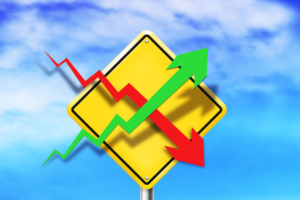Should You Sell Your House In 2022?
The headlines are abuzz with predictions about the housing market. The RBA has lifted interest rates 25 basis points on the back of rising inflation. That’s a rise to 0.35%. The hike comes after 2021-22 witnessed the largest annual increase in Australian history when house prices hit an 18.1% high. The pandemic saw the RBA cut the interest rate to 0.1% in fear of COVID devastating the economy. But this is the first rise in 12 years. Leading experts concur that the housing boom of recent years is behind us. Certain sellers will doubtless experience jitters as the market enters a correction phase. Meanwhile, the majority of sellers are asking themselves, “Should I sell my house in 2022, or wait until the market improves?” That begs the question, “How long will I be waiting for the market to recover?” So, should you sell your house now or wait and see?
What If You Sell Your House Now?

Competing factors are still making for a climate of uncertainty. The wait is over now that the RBA has acted. The near-term forecasts estimate continuing inflation. Those in the know interpret the signals as suggesting this is just the first of many incremental rises. A further drop in house prices is expected, although that translates into a slowing in the growth of median price housing. Prices rose 20% last year. Therefore, what goes up must come down. In the housing market, when interest rates rise, prices drop. Prices in capital cities have so far dropped by less than half of the regional average, from 0.02% to 0.44%. Regional prices have risen on the back of the pandemic exodus that began two years ago. Overall, the median Australian house price fell from +2.8% in March 2021 to an increase of just +0.6% in February 2022.
All of this appears to suggest that sellers might benefit from a wait-and-see approach. But is that necessarily wise? Right now, a lot depends on whereabouts you are selling. For instance, in Brisbane and Adelaide, available listings are low and are experiencing increased buyer demand. This puts the seller in the driver’s seat in those capitals. However, that is tempered by clear signs that the market is simultaneously slowing in both cities. Consonantly, regional markets are performing comparatively strongly too. Areas like South-East Queensland and NSW’s North and Central Coast are doing well. In Victoria, the Mornington Peninsula and Geelong are benefiting from a shift to the peripheries. This contrast between the major cities and the regions is due to the difference in housing availability. Between that and affordability in major cities, the graph begins to zig-zag unevenly.
What If You Don’t Sell Your House Now?

The conditions underlying the pandemic boom were created by current homeowners rushing to find bigger houses. They took advantage of the low-interest rates to sell and then buy a larger space. On average, they were seeking better homes from which to work remotely. Right now, many agents describe the market as the most balanced they’ve seen in a while. They are reining in sellers who are overly optimistic about their property’s price. The bulk of sellers is waiting for the traditional peak period of summer to list their houses. However, they should do so with a breath of caution. While it may become neither a buyer’s nor a seller’s market, buyers are being more careful. The large sums that were offered a year ago are unlikely to be on the table. Therefore, sellers should not become frustrated by believing their house is worth more than they think.
Again, all of this is dependent upon the inevitable market realities. Those selling homes in sought-after areas are still enjoying busy competition from buyers. That might not translate into a national trend, but it shows that sellers are now in a home-by-home competition. However, that may change as first home buyers favour median-priced homes. Up until now, analysts were hedging their predictions pending the federal election outcome and what the RBA decided. The advice is, therefore, that those wishing to get in before things get tough should not wait. Things are good enough at present to achieve a better price than what may be on offer down the road. Other advice suggests that sellers should ignore the market and concentrate on finding the right buyer. Nevertheless, senior industry analysts are pessimistic about the outcome going into 2013. They figure prices will plunge as low as 9.2%; maybe lower.
Why Is The Market So F&*#%#?

Many home sellers might be screaming into their pillows. Having watched houses sell for record prices, they fear they’ve decided to sell too late. This means downsizing expectations or probably not selling at all. It’s all down to the dreaded wait-and-see, as opposed to, sell and be damned! Once they’ve overcome their denial, they can move on. When they’re done with bargaining, anger, and depression, they can accept the situation. That means asking why the market is so screwed. The pandemic proved a goldmine for some. But that’s over. Interest rates must therefore rise. The market will correct itself. Then we have a federal election, which is the least exciting in years. The outcome looks grim on either side of the two-party preferred coin. It’s a matter of one side’s bold promises over the other and whether or not they keep them. Nevertheless, other factors are busily at play.
Thereafter come all the other elements that conspire to make consumers glum. The war in Ukraine is becoming an oft-used excuse to dampen spirits and adjust to dire expectations. Monetary policy that spins about like a crippled drone doesn’t help. And of course, there is the national come down from the highs of the recent property boom. All the signs point to buyers tightening their belts and lowering their expectations too. The RBA will keep an eye on what the overseas central banks do, but things are looking tough all over. The real key to it all is not what the analysts tip, but how the RBA reacts. That will be the true test of the market. But on the bright side, investment is slowly returning. It’s looking especially brighter for units as immigration resumes and overseas students return from the COVID hiatus.
So, Should You Sell Your House In 2022?

Given what we’ve determined, it’s neither a buyer’s nor a seller’s market. This creates a space for opportunity. The best house will most likely find the right buyer. Waiting around for interest rates to blow up might not be the surest strategy. If you’re thinking of selling for other than practical reasons, it might be wise to reassess your priorities. If you’re a median-priced homeowner looking to sell but still buy within your range, now might be the time. It becomes a matter of being stepwise. However, be careful if you assume a significant interest hike just to take a half-step. You may find that your investment devalues but your payments increase. In the end, if you’re viewing the market as an investor, you’ll require the advice of savvy agents. If you’re simply aiming to find a dwelling for a humble life, your decisions will be related to your options.
Much of this information is of primary concern to those who are selling in the major cities. Again, the reality will differ from region to region. As far as outlying areas are concerned, the pandemic has spoken. While growth may have slowed it hasn’t gone belly up. The market never stops. As long as immigration continues and investment grows so do houses. The balance between the buyer and seller must eventually be met. These are overall projections—generalities that might not harshly impact your situation. As always with real estate, it’s a matter of doing your research and securing the help of the best agent for you. And the agents can only improve in a tight market. The rules governing the survival of the fittest will apply. Those who flocked to the industry hoping for easy riches will move on. Only the best will remain.
Conclusion
Regardless of how the market reacts, buyers will still buy, and sellers will sell. That is the market. The market is constant, and that’s all you need to worry about. The trouble is that the recent boom created great expectations. Those assumptions, however, relate to a cyclical event and shouldn’t be considered the norm. Once you reconcile with that truth, you begin to see things a lot clearer. And in doing so, you knuckle down to the business of selling your house. In an uncertain market, you’ll need all the certainty that money can buy. In this case, that means the guidance of a seasoned real estate professional. If you’re getting into the market now, don’t wait. Contact us at Perfect Agent and we will pair you with the best real estate agent for you!




